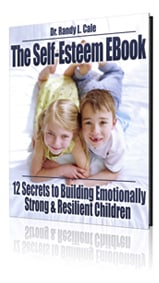It is not uncommon to have my coaching clients complain about their children. With the struggles of the past year, it seems I hear this more often as parents have fewer outlets for their children. However, it is interesting when the parent comment sounds something like this, “My son pushes my buttons. I explained that I need him to act better because if he behaved better, I wouldn’t get so upset and HAVE TO yell at him.”
Notice how my client (and again, this happens quite frequently) used his therapeutic time to complain about his son. Also, this dad put the responsibility for his outbursts on his son, expecting his son to lead them out of this spectacle of emotional reactions.
Who Is Leading Who? Who Is Supposed To Model The Path To Civility?
We know the answer. How Dad does life is (usually) how his son does life. And his son will follow his dad’s lead on when and how much to react to others.
My client didn’t see his role in this because he has the mental story that he is worried about his son’s tendencies and thinks that his son has a problem. He sees his son as negative, always complaining, and unwilling to walk away from a conversation without getting in the last word. Yet, the reality is that this dad is often complaining to his son about his behavior. He is thinking negative and pessimistic thoughts about his son. Ultimately, the dad is also unwilling to let his son have the last word; it is the dad who wants and tries to demand having the last word. (He does this despite repeated failures to get the last word.)
Reality: How You Cope & React = How Children Will Likely Cope & React.
The fundamental purpose of this article is to heighten your awareness of the power of modeling. What behaviors and reactions we model affects children on several levels and has more power than we suspect. This is because children learn the “how” of living by observing where parents invest their attention and energy.
As parents, we teach it by what we talk about. We teach it by what we complain about. We also teach by what we pay attention to and what we ignore. We teach what is worthy of upset. We teach when it’s okay to yell and how loudly when things don’t go my way. We even teach that it’s okay to be ugly and disrespectful to those I love if I think they deserve it.
There are other influences, of course, but modeling is the most powerful part of the teaching experience for children. So, while the words and contents of your CALM conversations with your kids are important, the more powerful influence is in teaching you always convey through the way that you live. It’s through how you do your life.
Questions To Consider Carefully:
1) Action: What are my daily behavioral habits?
We know the difference between what is healthy versus unhealthy. We know that smoking will harm us, a lack of exercise will compromise our lives, and processed sugars and simple carbohydrates are harmful over the long term.
In situation after situation, how you discipline yourself to maintain healthy habits is much more important than any words or discussions that you have about those habits. In reality, this is about walking our talk and noticing whether we use words to try to teach, or do we lead with healthy habits that demonstrate our commitments?
Do I habitually get angry when I don’t want my children to react with anger? Do I speak negatively about the in-laws when I want my children to be respectful? Do I regularly talk about exercise, but my kids have never seen me lift anything other than the TV remote?
Forget what you talk about. Focus on what you do. Commit to habits that show what you care about, and affirm, through action, the values that you want for your family.
It not that words are irrelevant, of course. It is that action dominates how we teach, and we must first focus on action. And in that, we take responsibility for every choice we make, before we turn to critique our children.
2) Words: What do I regularly talk about and repeat?
Now, here is where words do matter. Do you complain about your co-workers? Do you focus on what your children aren’t doing? Do you keep discussing problems? Do you keep noticing what is not working rather than what is working?
Is it a world where your kids are experiencing you as a complainer, focused on negativity and all the problems that abound in life? Or do they experience you as a parent focused on what’s positive, seeing the possibilities in life, and being grateful for what works?
Is dinner conversation about all the downers and struggles from the day? Or is it about what you love, what you learned, and what inspires you? Do you have questions that uplift and lead to gratitude, or are the questions based on anxiety and fear?
This is a critical distinction to make. It will shape how your children learn to focus their attention.















